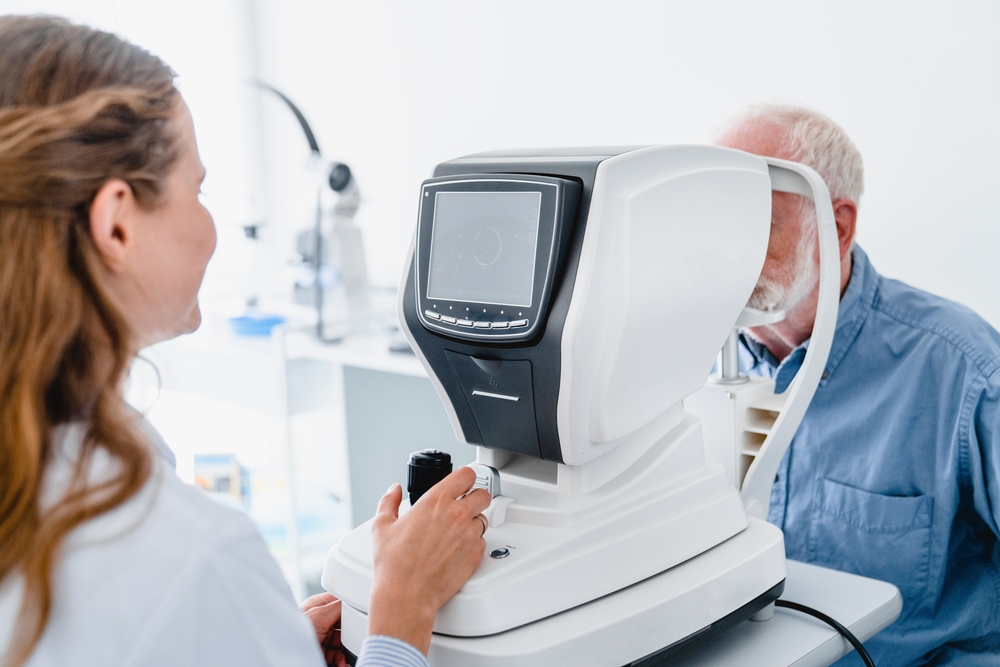
Glaucoma is a serious eye condition that can lead to vision loss if left untreated. It occurs when the optic nerve, responsible for sending visual information to your brain, becomes damaged due to high intraocular pressure (IOP). While there is no cure for glaucoma, early detection and proactive management can significantly slow its progression, preserving your vision. Let’s explore the various treatment options available and key lifestyle changes that can help you manage glaucoma effectively.
Understanding Glaucoma
Glaucoma is often referred to as the "silent thief of sight" because it progresses gradually and without noticeable symptoms in its early stages. The most common type is open-angle glaucoma, where fluid drainage in the eye slows down, causing pressure to build. Less common types include angle-closure glaucoma, which can cause sudden and severe vision problems, and normal-tension glaucoma, where optic nerve damage occurs despite normal eye pressure levels.
Regular eye exams are crucial, especially if you have risk factors such as a family history of glaucoma, being over 60, or having diabetes. Early diagnosis through comprehensive eye exams is key to preserving your sight.
Treatment Options for Glaucoma
Managing glaucoma typically involves reducing intraocular pressure to prevent further damage to the optic nerve. Here are the primary treatment methods:
1. Prescription Eye Drops: Eye drops are often the first line of defense against glaucoma. These medications work by either decreasing the production of fluid in the eye or improving the drainage of fluid. Common types of eye drops include:
Prostaglandins: Increase the outflow of fluid.
Beta-blockers: Reduce fluid production.
Carbonic anhydrase inhibitors: Lower eye pressure by reducing fluid production.
Alpha agonists: Both reduce fluid production and increase drainage.
Consistency is key when using eye drops, as missing doses can allow your eye pressure to rise, leading to potential optic nerve damage.
2. Laser Therapy: Laser treatments are often recommended if eye drops aren’t sufficient. Two common laser procedures include:
Trabeculoplasty: Improves fluid drainage in open-angle glaucoma.
Iridotomy: Creates a tiny hole in the iris to allow fluid to drain, particularly effective for angle-closure glaucoma.
These non-invasive treatments can effectively lower eye pressure and may reduce the need for medications.
3. Surgery: In more advanced cases, or when other treatments fail, surgery might be necessary. Surgical procedures are designed to improve drainage of intraocular fluid and prevent further damage to the optic nerve. Options include:
Trabeculectomy: A procedure where a surgeon creates a new drainage pathway to lower eye pressure.
Drainage implants: Small devices are inserted to help excess fluid drain from the eye.
Minimally Invasive Glaucoma Surgery (MIGS): A newer, less invasive option for managing glaucoma, which involves tiny incisions and devices that help fluid drain.
Lifestyle Changes for Managing Glaucoma
While medical treatments are essential, lifestyle changes can also play a significant role in managing glaucoma and supporting overall eye health.
A diet rich in fruits and vegetables, particularly those high in antioxidants like vitamins C, E, and A, can support eye health. Leafy greens like spinach and kale are particularly beneficial. Omega-3 fatty acids, found in fish like salmon, can also support eye health by improving circulation.
Regular physical activity can help lower intraocular pressure. Low-impact exercises such as walking, swimming, and yoga are great choices. However, avoid exercises that involve inverted positions, as these can increase eye pressure. Always consult your eye care professional before starting a new exercise routine, especially if you have advanced glaucoma.
High stress can potentially raise eye pressure, so incorporating stress-reducing activities like meditation, deep breathing exercises, or gentle yoga can help manage your condition. Finding ways to relax regularly can have positive effects on both your mental and physical health.
Smoking is harmful to overall health and can worsen glaucoma by restricting blood flow to the optic nerve. Limiting caffeine intake can also help, as excessive amounts of caffeine may increase intraocular pressure.
Wearing protective eyewear in bright sunlight or during physical activities reduces the risk of injury and helps minimize eye strain. Sunglasses that block UV rays are particularly important for eye health, so invest in a high-quality pair.
Partner with Glenpool Eye Care for Glaucoma Management
At Glenpool Eye Care, we understand the importance of personalized care when it comes to managing glaucoma. Whether you’re in the early stages or require advanced treatment, our team is here to guide you through the process and offer the best solutions for your unique needs.
Schedule your glaucoma screening with Glenpool Eye Care to monitor your eye health and explore your treatment options. Visit our office in Glenpool, Oklahoma, or call (918) 233-8400 to book an appointment today.







